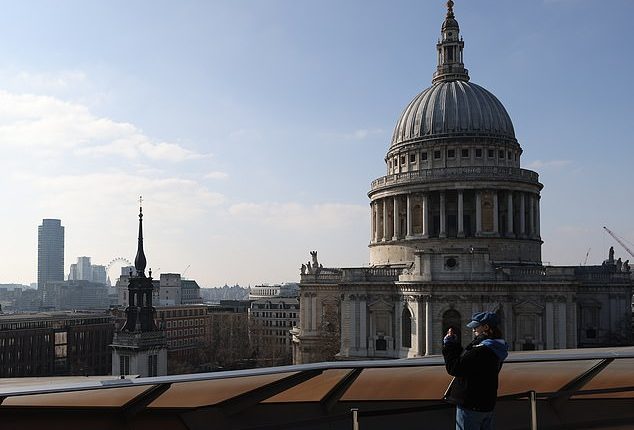
Wincanton, Hotel Chocolat, On The Market and SCS are very different businesses, but they have one thing in common.
Like the other two dozen UK companies that have recently succumbed to takeovers, the logistics group, the chocolatier, the property portal and the sofa chain were regarded as alluringly cheap.
As was revealed last week, Wincanton, whose clientele includes Waitrose, is to be taken private in a £556m deal, pitched at 52 per cent above its share price before the arrival of the bidder CEVA, the French global logistics group.
The typical bid premium used to be 30-40 per cent. The mighty Mars Incorporated, the proprietor of Hotel Chocolat, paid 168 per cent above its target’s share price at the time of the bid. Note, however, that the 375p-a-share offer for Hotel Chocolat, known for its Sleekster collection, was still below the 540p share price peak in late 2021.
So who will be next, as the spotlight turns to the bargains potentially on offer in the unloved UK markets? You may be inclined to lend little credence to bid talk.

Watching brief: Boardroom disaffection is a reason to pay attention to the rumours now surfacing
But boardroom disaffection is a reason to pay attention to the rumours now surfacing.
Many directors are said to be unhappy about the sorry performance of their companies’ shares, making these bosses possibly more willing to consider approaches.
Alexandra Jackson, manager of Rathbone UK Opportunities fund, sets out the background. ‘The share prices of some mid-cap companies now look severely undervalued,’ she says.
‘The markets are punishing companies more severely for any bad news, or even for the threat that may come from AI. We think some of these names will elicit bids, especially where their models are under cyclical pressure, rather than structurally broken.
‘We are noting that there’s a spate of new board members among this set of companies. That’s not unexpected after a tough period, of course. But what’s interesting is how many of these recent appointees have sold their previous businesses.’
This shift in the make up of boards is another compelling reason to tune into the takeover rumours. I may be a buy-and-hold investor – which is why I have stakes in funds like Rathbone UK Opportunities and the Amundi mid-cap tracker that focus on British medium-sized businesses. But I also enjoy a bid battle, and the chance of a rewarding outcome.
Brokers Peel Hunt argue that the takeovers of Wincanton and the other two dozen recent targets ‘provide a glimpse of the coiled spring that could release to launch a new wave of higher volume, higher value activity in 2024 as the outlook for financing costs becomes more certain’.
If interest rates decline, US private equity predators could be on the prowl, adding fuel to the row over foreign purchasers snapping up UK plc for next-to-nothing.
The private equity industry is sitting on a record $2.59 trillion of cash reserves, according to S&P Global Market Intelligence. Its most powerful players include Blackstone, KKR and Apollo which, late last year, paid £506m for The Restaurant Group.
But Peel Hunt is also forecasting more shareholder activism in 2024. Michael Nicholson, Peel Hunt’s head of mergers and acquisitions, comments: ‘We expect that the confluence of increasing demand for UK assets and UK institutional investors seeking to price-in an improving outlook will create greater tension between buyers and sellers – and between target boards and their shareholders.’
The focus on medium-sized and smaller companies will continue, but lower interest rates may make larger businesses a more feasible proposition for private equity and trade buyers.

Burberry, the £4.46billion FTSE 100 member, is rumoured to be one candidate. The luxury brand’s shares have fallen by 45 per cent over the past six months.
At present Burberry’s bag and coats seem to lack the lustre that makes the Hermes equivalents so desirable, although they are hugely more expensive.
Also cited are other FTSE 100 names: Centrica, owner of British Gas; the power generator Drax; Ladbrokes’s owner Entain; Reckitt, maker of Gaviscon and Nurofen and also Unilever, which brings us such brands as Dove and Marmite.
Entain’s shares are down by 37 per cent over the past 12 months.
This has ignited rumours that the American gaming giant MGM – which bid for Entain in 2021 – could emerge again as a suitor. They have a joint venture in the online sports betting operation Bet MGM.
There will be more such speculation, surrounding even such colossal enterprises as the £96billion BP.
This week, for example, the embattled financial group Abrdn was felt to be vulnerable. Shares have tumbled by 25 per cent over the past six months. The announcement of a cost-cutting scheme seems to have raised rather allayed concerns.
If you hold shares in any of these companies, this seems like the moment to sit tight, await developments and hope that this speculation helps spark the revival of our stock markets this year.









